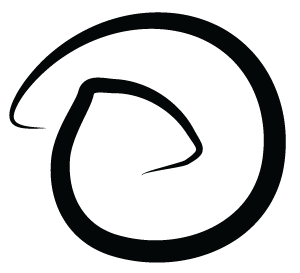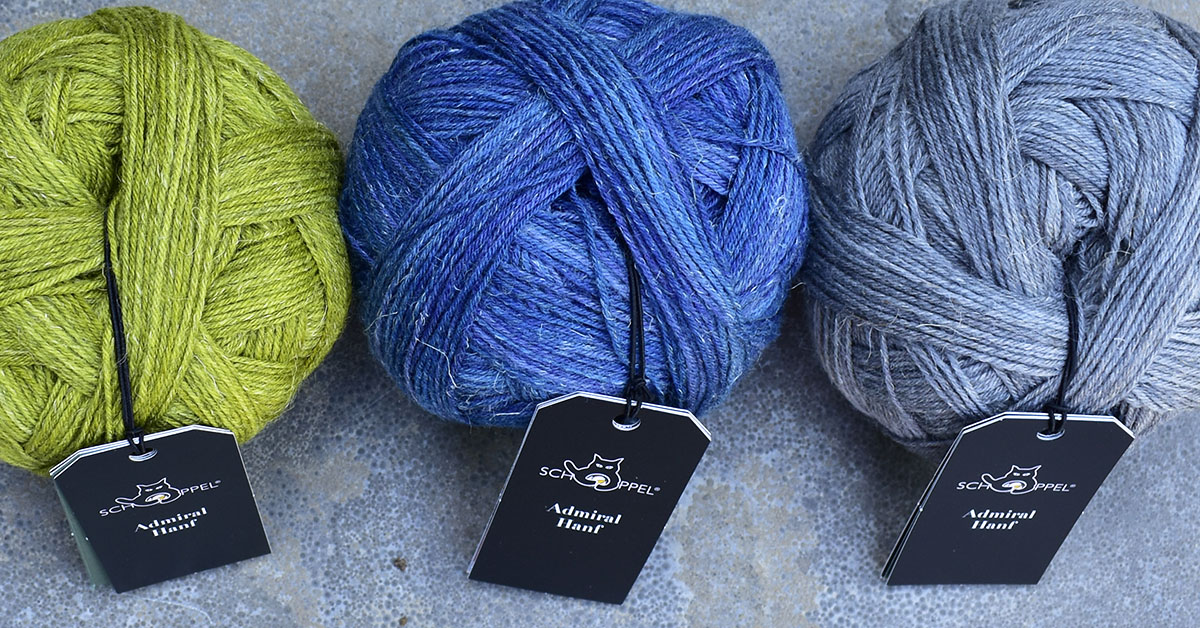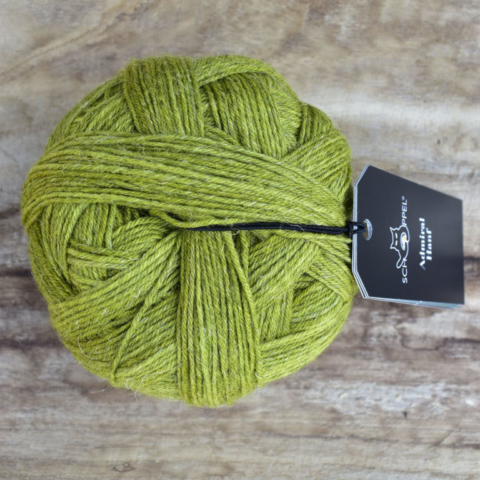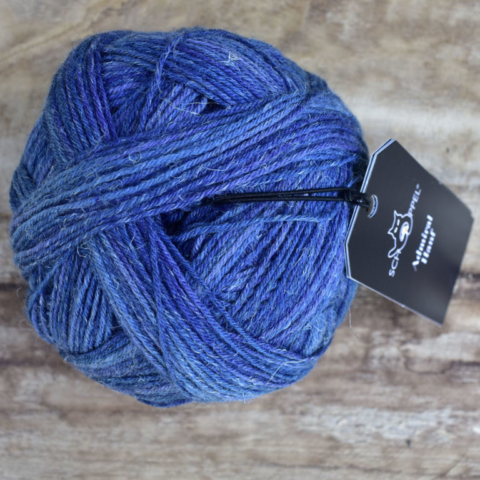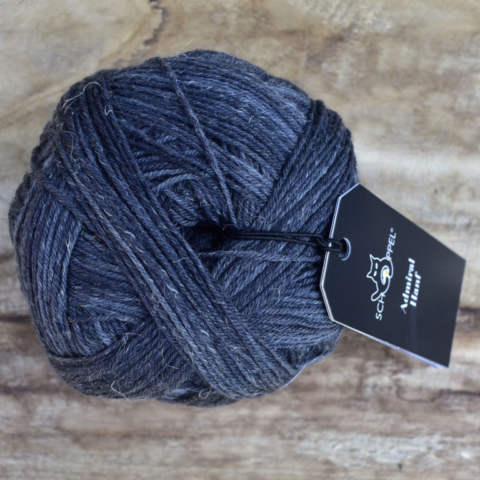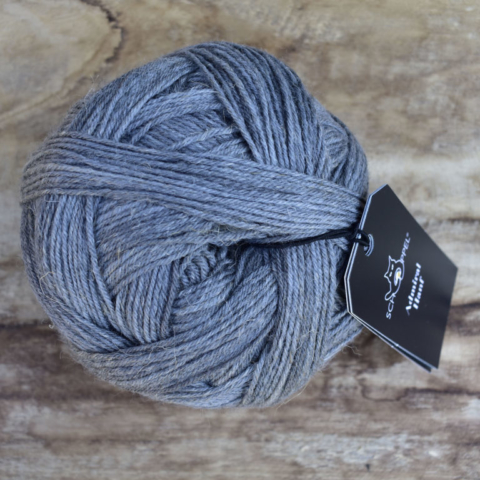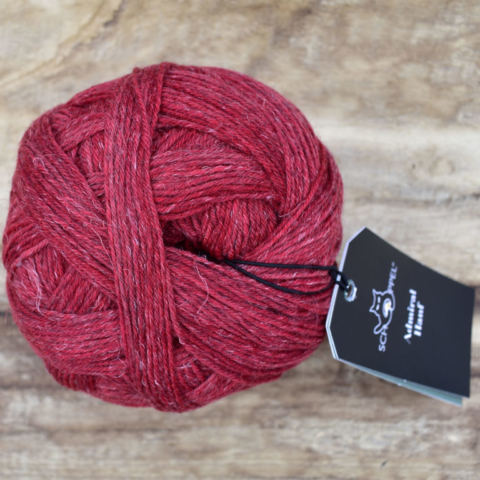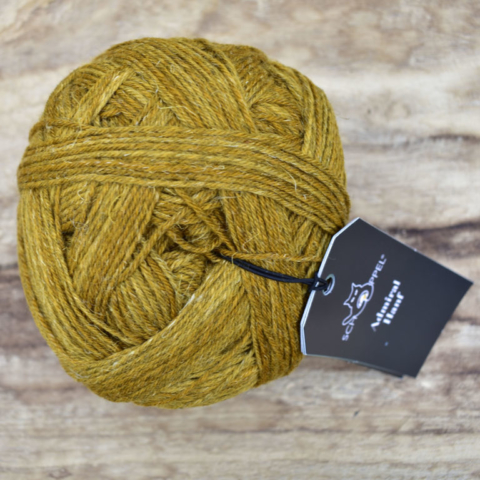Schoppel Admiral Hanf is the first longlasting sock yarn blended with environmentally friendly biodegradable nylon. The yarn is dyed in shadow colorits, which means itsn’t a true solid and has a bit of heathered look.
Schoppel has been producing robust sock yarns made of eco-friendly, biodegradable polyamide since 2019. They are using the Amni Soul Eco® technology. At the end of its life cycle the polyamide can degrade quickly as its composition makes it easier for the bacteria to access the waste product and therefore accelerates the process of biodegradation. The fiber will decompose in about five years through natural degradation processes of the earth while other synthetic fibers will remain in the environment for decades before they will degrade completely. Yet the advantages of the polyamide fiber such as tear strength are retained. Like with cotton or wool daily use will not start the degradation process.
67% Virgin Wool, 23% Nylon (biodegradable), 10% Hemp
100 gram / 420 meter
Recommended needles: 2–3 mm
Gauge: 30 stitches is 10 cm
Care instructions: Machine wash 40°C
Schoppel Admiral Hanf can be purchased from my webshop here.
Colours
Note that all colours may look different depending on your monitor and do not necessarily reflect the colours in real life.
The yarn is currently available in 4 colourways:
2372 Gooseberry: a vibrant yellowish green
2377 Elephant Hide: a dark grey
2380 Porcellain: a light grey
2376 Workwear: a muted dark blue
2443 Red peper: a cold red
2444 Kurkuma: a brownish yellow
Origin
Schoppel advocates for a guarantee of the origin and short supply chains of knitting yarns. They guarantee a hundred percent sustainable and socially acceptable production in Europe over the whole production process.
The wool used to produce Schoppel Admiral Hanf is sourced exclusively from Patagonia. The dry down-slope winds of a region larger than Germany is unsuitable for other agricultural use, but these large areas allow the sheep to live in nature and complete freedom. The animals there are little affected by insect infestation. Therefore the use of pesticides is often not necessary and the painful practice of Mulesing is unknown. Twice a year the animals are caught for the shearing and a health check up.
